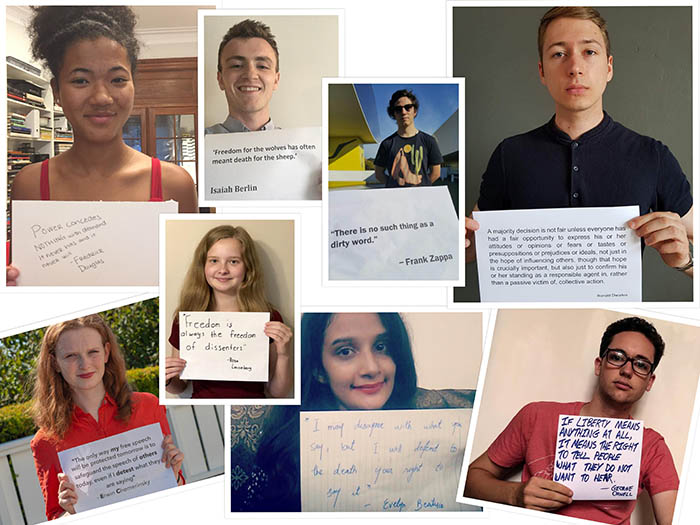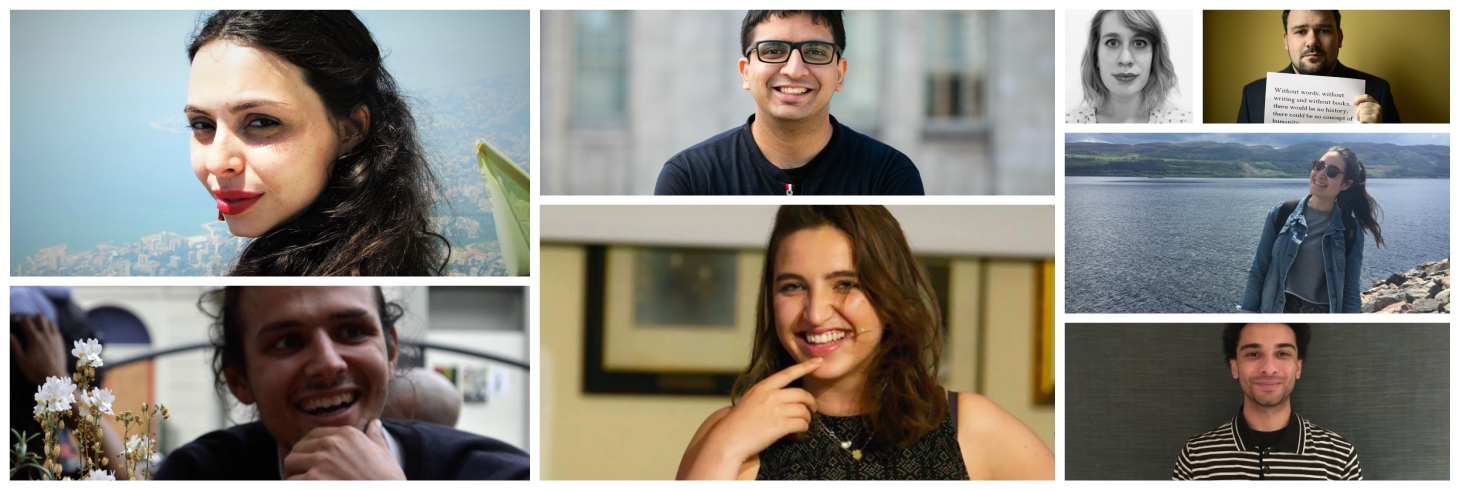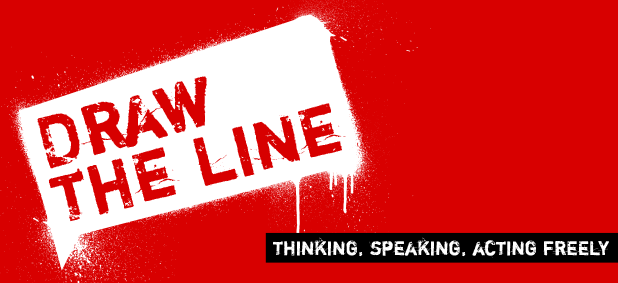
In the latest #IndexDrawtheLine, we’ve been asking the question: where should governments draw the line on everyday surveillance?
Mass surveillance has been a controversial issue, notably since former contractor for the US National Security Agency (NSA) Edward Snowden leaked information about the agency’s domestic spying. Today, some governments worldwide monitor phone calls, text messages and/or social media communications within the countries. Granted, mass surveillance may well be beneficial for governments to fight terrorism and ensure national security, but some people are concerned about the invasion of their privacy and personal life.
As well as the debate about this question on Twitter, we asked some students based around the world to give us their views. The students and their respective views can be seen in the form of photographs below.
One user on Twitter argued that the line should be drawn as per the law and added, “This right of OURS ‘…shall not be violated and no warrants shall issue but upon probable cause'” referring to the fourth amendment to the United States constitution.
Other responses suggested that governments should be able to ensure national security without invading the privacy of the people. One of the students below argues that the line should be drawn so that “my mother knows more about me than BIG BROTHER”, referring to the leader of the fictitious state from George Orwell’s novel Nineteen Eighty-Four.
The general consensus seems to be that government surveillance should not happen unless it is proved there is a genuine threat to the safety and security of the people.
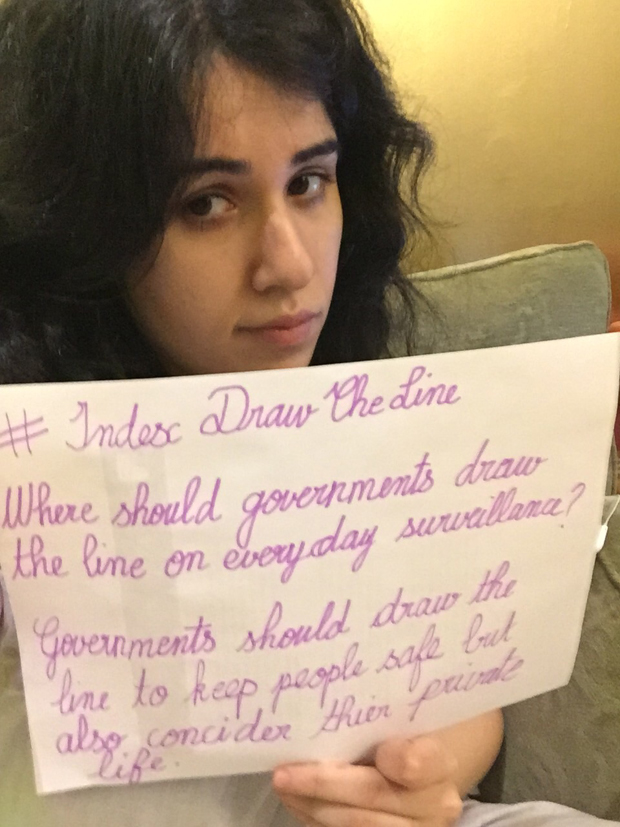
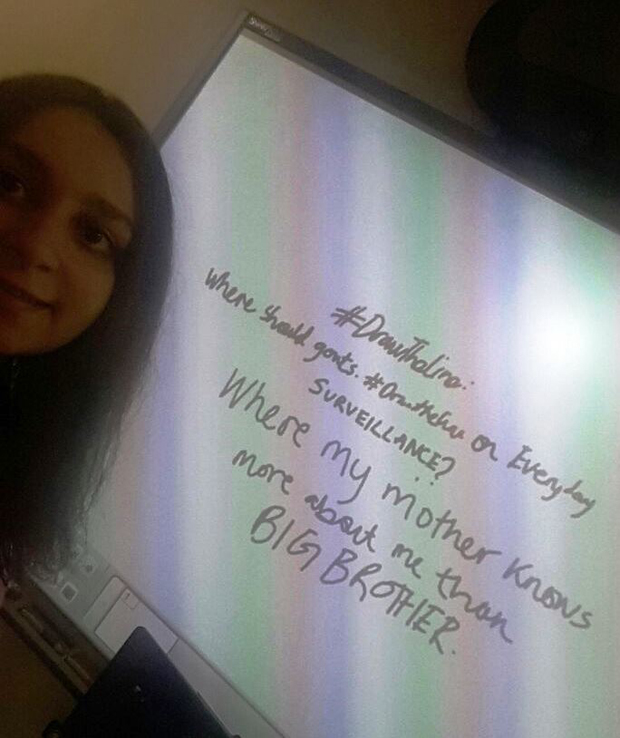
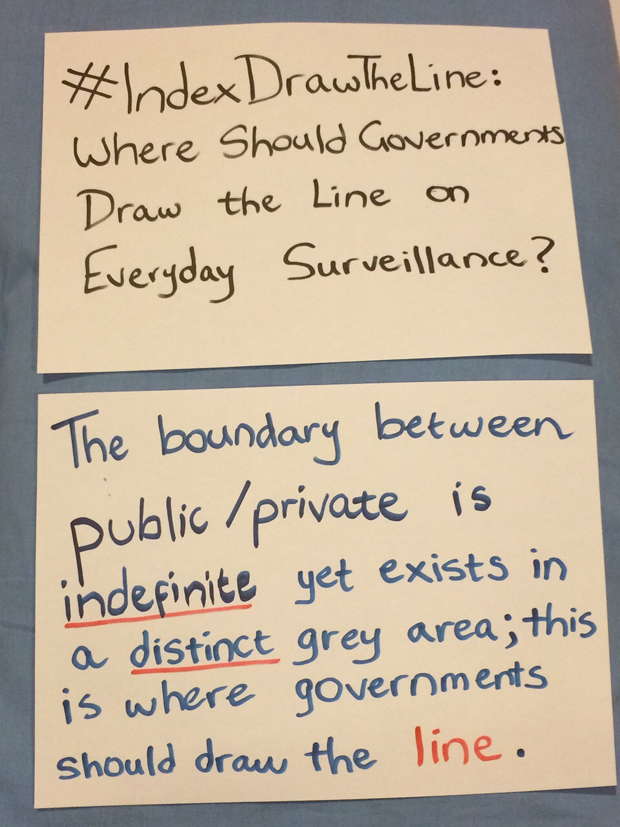
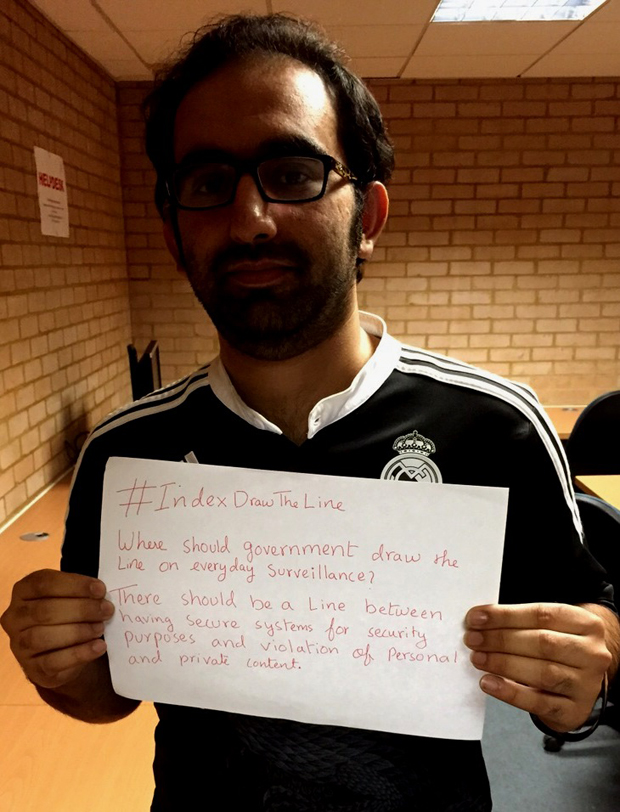
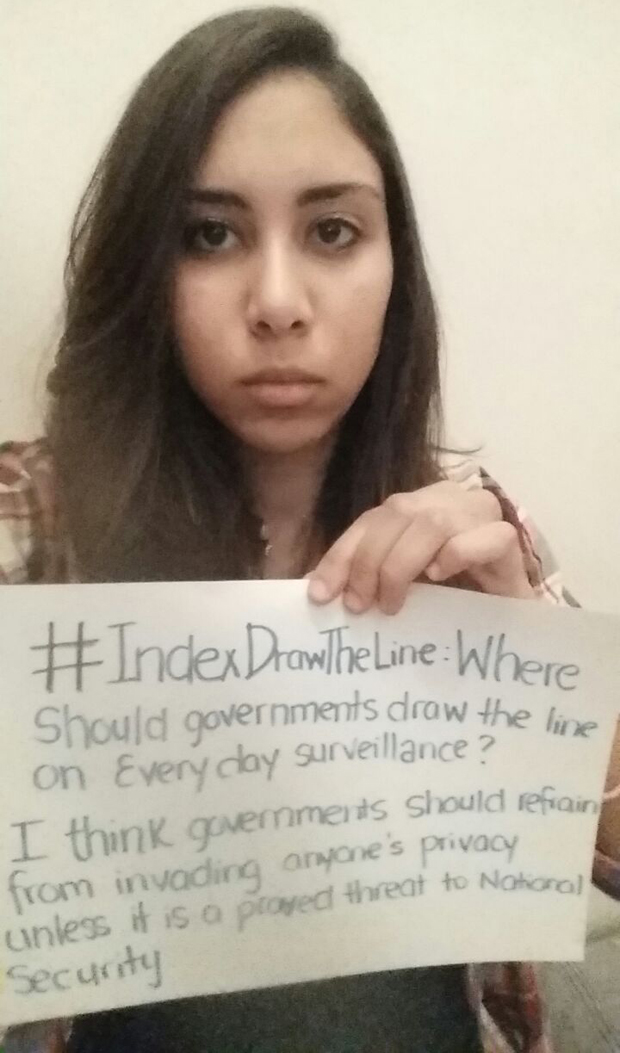
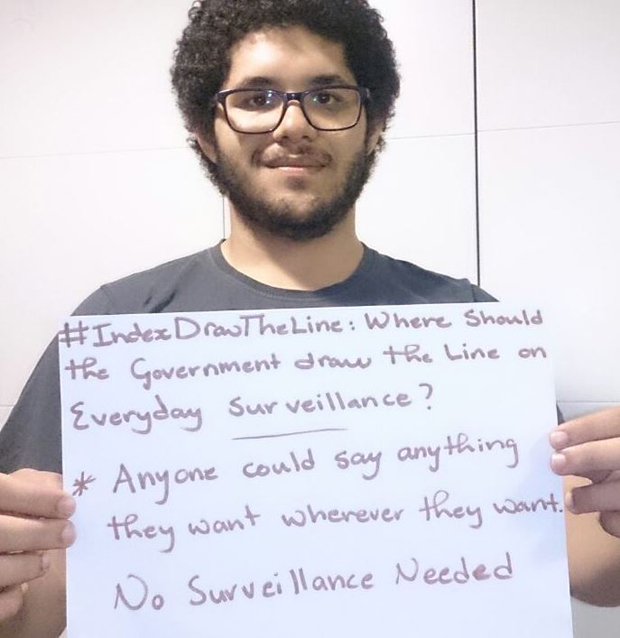
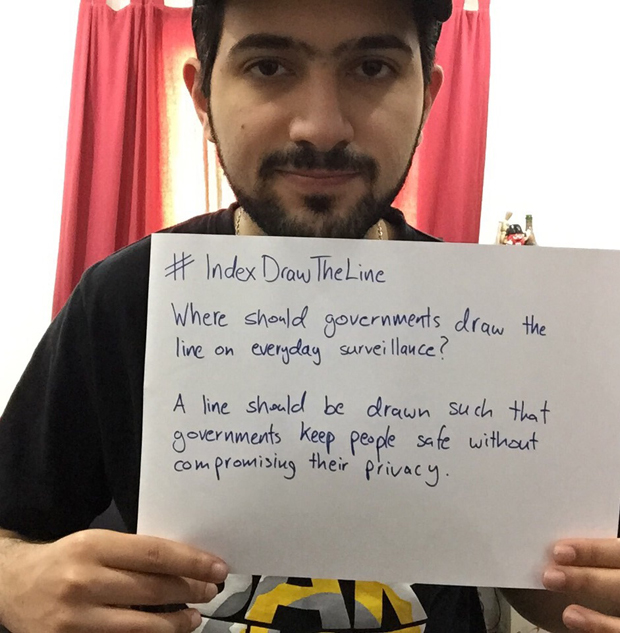
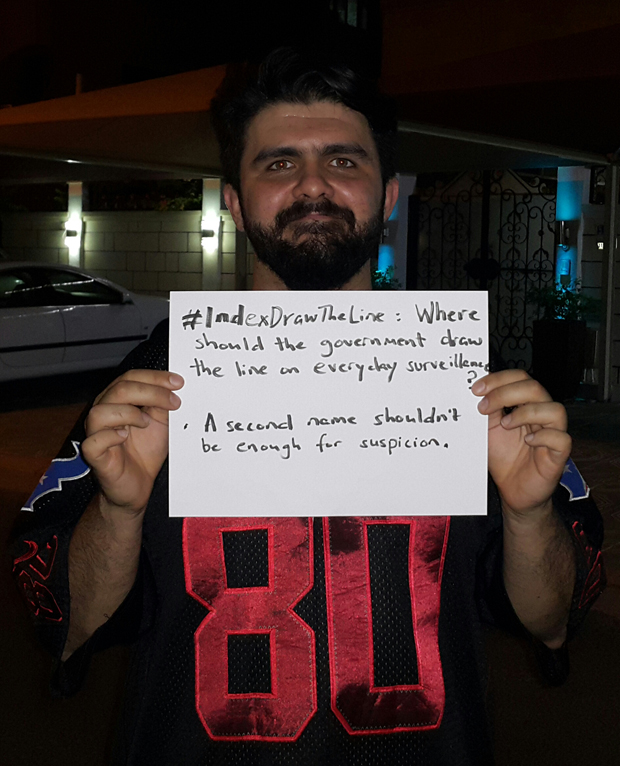
This article was posted on 6 June 2015 at indexoncensorship.org

